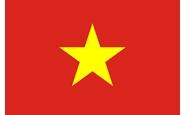Government/Policy

September 27, 2016
Vietnam CR & Coated: Cancel, Ship or Wait & See?
Written by John Packard
Steel Market Update spent a good portion of our day today talking with steel traders and end users who have exposure (orders on the books not yet delivered) to Vietnamese cold rolled and/or galvanized/Galvalume steels. We were trying to determine how the importers of record were handling any orders on the books.
What we found is there are essentially three ways the steel trading companies are handling existing Vietnamese orders on the books.
• A number of traders have cancelled their orders and have decided that the risk is just too high.
• A number of traders have orders on the books and letters of credit in place and they have no choice but to allow the steel to be shipped (although the end destination might be altered) .
• A third group of traders are in communication with their attorneys and they don’t quite know what they are going to do.
Traders don’t know how the US Department of Commerce is going to act to this circumvention request. Obviously we are in a hyper-charged political environment which could favor the domestic steel mills. At the same time there is a WTO definition of transformation which (we believe) supports the ability of the Vietnamese mills to convert hot rolled to cold rolled or galvanized and in the process change the country of origin.
The fear is that the importers of record might end up liable and would have to pay the cash deposits/duties that are in place against Chinese cold rolled and CORE products.
In the case of Chinese cold rolled we are talking antidumping duties (AD) of 256.70 percent and countervailing duties of 256.44 percent.
Chinese galvanized products have an antidumping duty (AD) of 209.97 percent and the countervailing duties are either 39.05 percent or 241.07 percent.
So, the risk is quite significant should the US DOC rule in favor of the domestic steel mills.
Some of the Comments Made to SMU by Traders Today:
“…as far as I can tell, folks are split on this issue. some feel the reasoning in the suit is unsupportable, i.e., buying substrate (HR) on the open market and adding value to it, (cr/coated) is a fundamental part of steel making for re-rolling mills. furthermore, sourcing ‘parts’ in other countries is a universal and integral practice necessary to building finished products. If the domestics have evidence and can argue that ‘repackaging’ is taking place, i.,e, exporting a finished product from a 3rd country with documents stating it was produced in the exporter’s home country, then there may be traction to be gained. The filing has dried up the offers from what I can determine, but if there are brokers offering VN during this interim, I doubt many buyers would be willing to take the chance.”
“Today I am notifying customers that any un-shipped tonnage from Vietnam will not be coming. We are cancelling. It appears most of the customers have been understanding. Not pleased but understanding. Not sure about the time line on when penalties will be accessed and the Chinese percentage is too great of a risk. Not willing to take a chance at this time. I can not see any trading company taking a chance and making new offers. While I think the domestics have a difficult road to be successful, I acknowledge that the industry has a very strong record of winning trade cases. Has it been 40 years since they last lost a case. Even while the industry was on full fledge allocation 5 of the last 7 months, they still want to eliminate ANY competition. For Vietnamese material we will sit on the sidelines while this process plays out.”
“We are really not doing anything right now, as we await advice from our attorneys and directions from our top management. We have cancelled nothing to date. We are not soliciting any new business and whatever we had quoted, is now on hold.”







